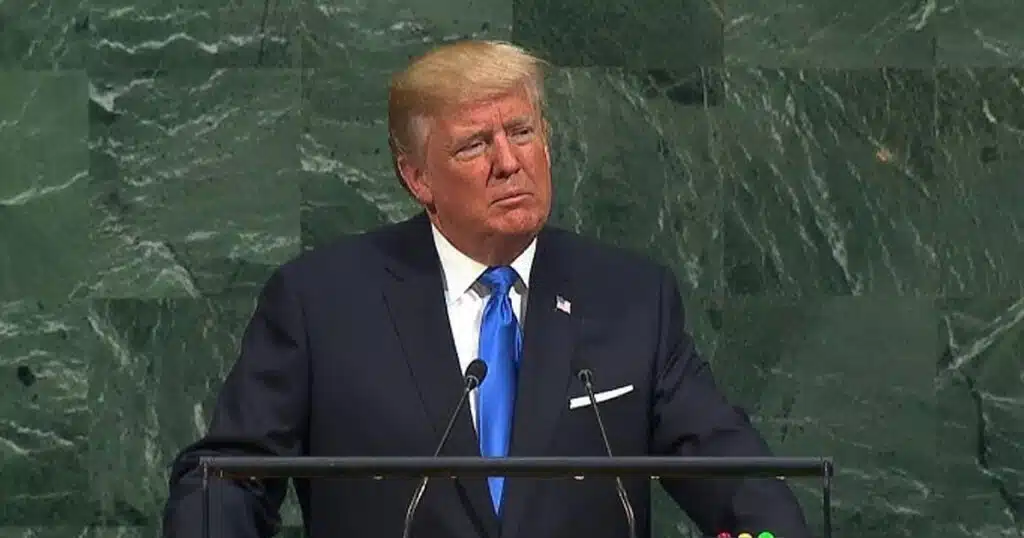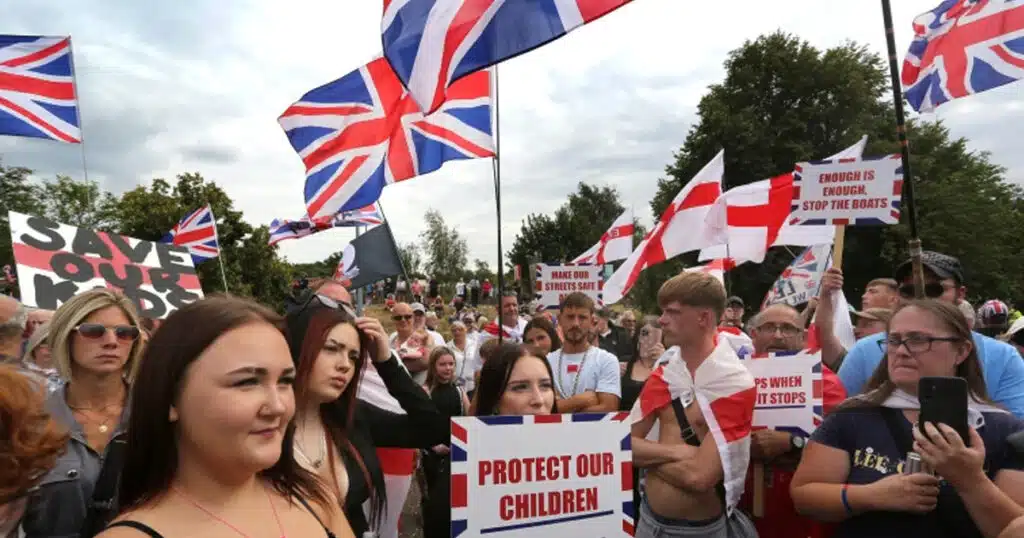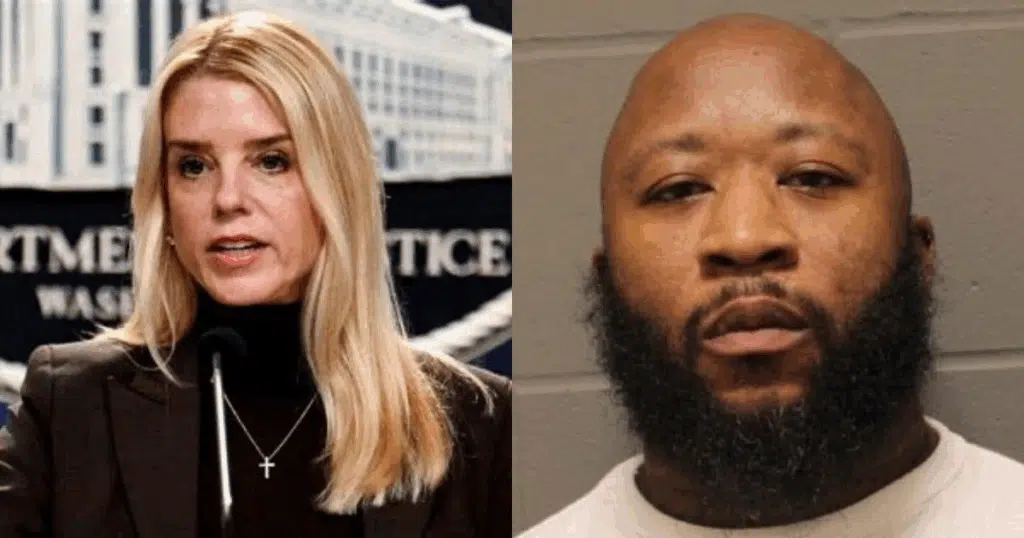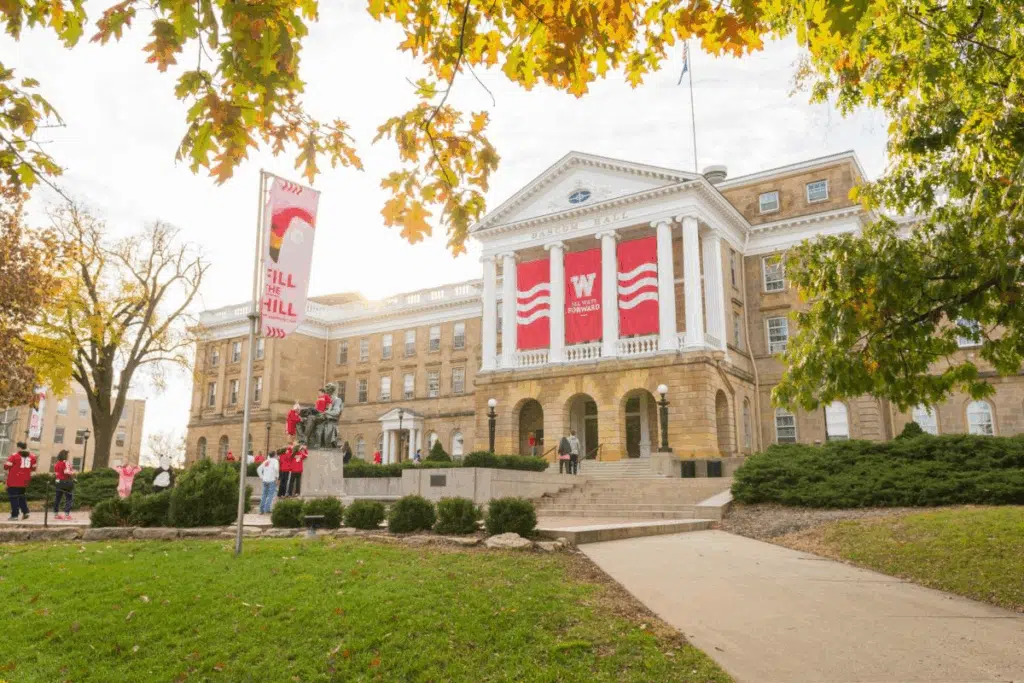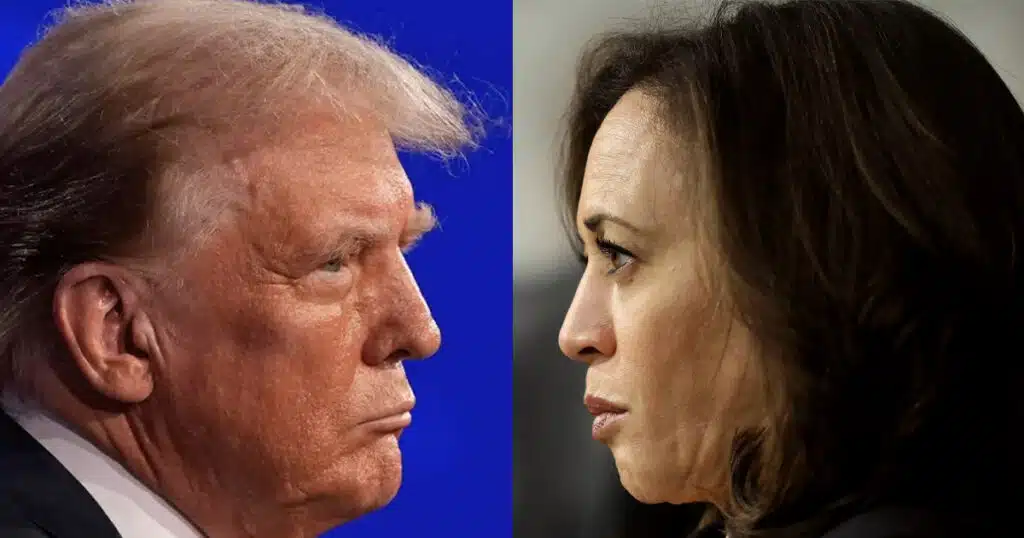
Harris and Trump Trade Blows During Heated, High-Stakes Debate
PHILADELPHIA — The handshake was a retro touch, even if it seemed a bit scripted. Not unlike the rest of the night.
She stepped toward him. “Kamala Harris,” the vice president said by way of introduction. “How are you?”
He reached out and took the hand on his side of the stage. “Nice to see you,” former President Donald Trump replied, “I’m fine.”
The two had never met, and Harris got the first final word: “Let’s have a good debate.”
It was the first time two presidential candidates shook hands in nearly a decade, an end to a drought in decorum brought on first by antipathy in 2016, a pandemic in 2020, and again by mutual contempt on June 27. But after an unprecedented summer defined by the results of that debate – the defenestration of a sitting president – and the attempted assassination against Trump, the debate that followed seemed all too conventional by comparison, anticlimactic even.
The big question that emerged as the candidates left the City of Brotherly Love: Will they do it again? Harris said yes immediately. Trump waffled initially. Only losing prizefighters, he noted during an interview with Sean Hannity of Fox News, “immediately want another fight.”
But he did not win, at least not by the standards set out by his own campaign.
Florida Rep. Matt Gaetz, one of the Republicans who helped prep the former president, told reporters before the contest that “success” would be defined by the ability to tie Harris to the record of President Biden. The plan did not survive contact with reality or the competition who managed to repeatedly put Trump on defense. South Carolina Sen. Lindsey Graham summarized the ensuing panic on the right when he said the GOP debate team ought to be fired and declared the evening a “disaster.”
Trump should not have been surprised. The only other Republican who tangled with Harris in prime time, former Vice President Mike Pence, told RealClearPolitics ahead of the contest that she was “a formidable debater.” He said she would arrive with snappy one-liners and a practiced routine of sidestepping her own record, which includes support for an array of progressive policies. And Pence was right. She did all that and more, laying traps that Trump barreled into throughout the 90-minute affair.
The prosecutor put Trump on defense like she had promised to do. It started right after that handshake.
Harris goaded Trump about his inherited riches (he replied that his inheritance wasn’t all that big); the size of his crowds (he insisted that no one left early or was bored as she asserted); and his former allies who said he was not fit for another term (he said he fired poor performers). Trump jumped at every barb, no matter how insignificant, and with each response the record of Harris, the only incumbent present, seemed to recede farther from view.
“Donald Trump actually has no plan for you because he is more interested in defending himself than he is in looking out for you,” she said.
“That’s just a sound bite they told her to say,” Trump replied. “She doesn’t have a plan. She copied Biden’s plan, and it’s, like, four sentences. Like, ‘Run, Spot, Run.’”
At that moment, a detailed policy discussion was at risk of breaking out on stage. Harris said that tariffs would amount to a tax. Trump replied that the Biden-Harris administration hadn’t rescinded his China tariffs. She countered that he ran a trade deficit while in office and had not held the Chinese accountable for the origins of the COVID-19 virus. And that is when he suddenly called her “a Marxist.”
Because the microphones were muted, per pre-negotiated terms, interruptions were infrequent. Trump often grimaced and scowled during the attacks while Harris shook her head and smirked. Both often accused the other of being extreme, as they did during a clash over the issue of abortion.
Harris laid the fallout of the reversal of Roe v. Wade at Trump’s feet, blaming him for state laws where women were “bleeding out” because they were unable to obtain abortions after miscarriages. Trump did not deny that the Supreme Court justices he nominated had reversed that precedent. He insisted instead that because of his actions, the issue had been returned to the individual states.
And then they both took turns dodging.
The former president would not say definitively that he would veto a national abortion ban. “I’m not in favor of an abortion ban, but it doesn’t matter, because this issue has now been taken over by the states,” he said before adding that a veto specifically would not be necessary because a gridlocked Congress would never send that kind of legislation to his desk.
The current vice president would not say if she supported any restrictions on abortion. “I absolutely support reinstating the protections of Roe v. Wade,” she replied when asked that question but without noting that she has supported legislation to codify Roe nationally and roll back state restrictions.
Trump demanded that ABC News moderators, David Muir and Linsey Davis, “should ask” if Harris supported abortion up until the eighth and ninth month of pregnancy. They did not, and Republican outrage followed when the debate referees delivered their first fact-check in real time.
When Trump pointed to former Virginia Gov. Ralph Northam’s defense of late-term abortion as an example of Democrat extremism, noting how that politician had said a baby who survived an abortion would be “kept comfortable,” Davis decided to weigh in. She dismissed the argument by saying, “There is no state in this country where it is legal to kill a baby after it’s born.”
At least four more rebuttals followed from the moderators on everything from Trump’s interpretation of FBI crime data to whether his comments about losing the 2020 election were in fact sarcasm. The pair of moderators did not extend the same scrutiny to Harris. When the vice president claimed, for instance, that Trump was promising “a bloodbath” if he did not win in November, Muir and Davis did not interject to clarify that those previous remarks, in context, concerned the loss of jobs, not loss of life.
Another fact-check followed a rambling remark by Trump that started with an answer about crowd sizes, included a claim about preventing a third world war, and then concluded with a broadside about how the Biden-Harris administration had failed to secure the southern border.
“In Springfield, they’re eating the dogs, the people that came in, they’re eating the cats, they’re eating the pets of the people that live there, and this is what’s happening,” Trump said, repeating a viral, though yet unsubstantiated, claim about Haitian migrants poaching animals in that Ohio town.
Muir replied that ABC News had been told by city officials that there had been “no credible reports of specific claims of pets being harmed, injured, or abused by individuals within the immigrant community.”
When Trump started to shoot back that “people on television” had made such claims, a clearly delighted Harris laughed, “Talk about extreme.”
While the night featured numerous spiteful exchanges, the evening was not definitive as the previous debate had been. Biden showed his age on stage in Atlanta, setting off an inexorable, and not entirely voluntary, exit from the campaign. Republicans were ecstatic in the aftermath as Trump steadily rose in the polls. But Harris has more than made up for that lost ground. She has pulled narrowly ahead in the RealClearPolitics Average.
Harris has managed to pull this off despite campaigning in a cocoon. She has held no news conference, no town hall meetings, and she held one pre-taped interview in which she brought running mate Tim Walz along for support. This strategy, despite its apparent success, had its drawbacks: A sizeable share of the electorate, 31% according to a recent New York Times/Siena poll, report needing to “learn more” about the candidate. Tuesday night’s debate was her opportunity to mollify those voters.
“There are a lot of people wanting to know more about Kamala Harris,” North Carolina Gov. Roy Cooper told RCP. “She’s been on the scene a while, but as vice president, you aren’t as out front as you are now as a presidential candidate.”
Trump needs no introduction after nearly a decade in politics, a fact that Republicans said at the beginning of the night made his job easier. “He is defined. We all know what he is,” Florida Sen. Rick Scott told RCP. “And he’s got a record to actually run on – a secure border, good economy, and no wars. So, I think the pressure is on her.”
Republicans had hoped that this would give Trump an opportunity to spend the night going on offense. Harris instead mostly sidestepped her past support for left-leaning policies like a mandatory gun buyback program and fracking ban. Then, when confronted with the record of Biden, the vice president severed that link, too.
“It is important to remind the former president, you’re not running against Joe Biden,” she said after he tried to pin the land war in Ukraine on her. “You’re running against me.”
The intended message from Harris was clear: She would be different, not more of the same. What remains consistent, despite the niceties at the beginning of the night, is the unbridled contempt the leaders of the two parties harbor for each other.
Trump alleged at one point that Biden “hates her” because of the president’s sudden withdrawal from the race, then said later in the evening that the two were one and the same. “Remember this,” he said of Harris while on the topic of inflation. “She is Biden.” The vice president shook her head.
The Harris campaign had hoped for another viral moment. She delighted her supporters during her last debate, the one with Pence in 2020, by cutting off his interjections by shooting back, “Mr. Vice President, I’m speaking.” Whenever the normal crosstalk would break out, she would roll out the line. First, it was a meme. Later, a T-shirt available for purchase. Four years later, it was fodder for Trump.
When Harris protested that Trump was not being honest about her record at one point, the former president shot back, “I’m talking now, if you don’t mind, please.” He added, “Does that sound familiar?” Into a muted microphone, she replied, “Don’t lie.”
This was the kind of exchange that Republicans wanted. They have often complained that Harris has escaped scrutiny since becoming the nominee, and they imagined a night of tough grilling and sharp exchanges. “I would do as many debates as possible,” Scott said for that exact reason before the candidates took the stage. “Because I think it’ll show who she is. I mean, we know who Trump is, okay? We need to know who she is, if she’s not going to do press conferences.”
Trump again met the press when he made a surprise visit to the “spin room.” He did not commit to a second debate with Harris when pressed by reporters. Instead, the former president claimed victory and voiced his displeasure with the refs. But when Republicans are blaming the moderators, are they losing?
“No, I thought the moderators were very unfair, but it was basically three on one, and I thought they were very unfair – the moderators – everybody did,” Trump told RCP. “But despite that, they’re saying that the debate was a victory.”
He was not caught by surprise, Trump continued. “I assumed the moderators would be bad because that right there,” he said, motioning to the ABC News logo, “is the worst of all the news networks in my opinion, and it always has been.”
This was confirmation that Harris had a good night, according to Sen. Chris Murphy. “You know who complains about the rules?” the Connecticut Democrat asked RCP at the end of the night. “Losers.”
There was no second handshake at the end of the night. Trump and Harris exited without exchanging words. A second debate between the two, like the outcome of the election itself, remains uncertain. And for the Democratic contestant, probably unnecessary.
This article was originally published by RealClearPolitics and made available via RealClearWire.
